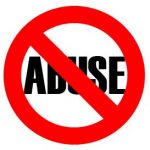We have 4 new references in our WWFF reference database. We are looking for a national coordinator expanding the COFF program. If interested please mail to team@wwff.co.
Cuba COFF references added
06 Thursday Jul 2023
06 Thursday Jul 2023
We have 4 new references in our WWFF reference database. We are looking for a national coordinator expanding the COFF program. If interested please mail to team@wwff.co.
17 Monday May 2021

The latest update (v0.0.14) has just been released…
This update includes (as always) the addition of a number of new awards and award steps, and addresses a number of small issues, , plus a bit of tidying up.
In particular, updating the plugin licence terms, to reflect it is released as a Creative Commons CC-BY-SA licence (open source).
Note: some of these have been pre-released…
This update revises the following new awards and/or award levels:
Linked to these, some fixes to Award GCRs and Award operation:
This update also addresses the following other issues:
Open Issues can be found in the Issue Tracker.
Further work is ongoing…
Development of Logsearch has to fit around family and work commitments! Unfortunately, my job means I’m on the road a lot!
Any problems, or new feature requests, via the Help Desk Forum please.
10 Tuesday Mar 2020

The latest update (v0.0.11) has just been released…
The headline is (once again) the addition of a number of new awards and award steps, plus a bit of tidying up.
Note: some of these have been pre-released…
This update revises the following new awards and/or award levels:
This update also makes some changes to the Directory:
This update also addresses the following other issues:
Open Issues can be found in the Issue Tracker.
Further work is ongoing… especially to try and address the lack of Club Station reports in “Top Operators”… I thought I had the answer, but it made the queries too complicated and affected server performance.
It still hasn’t happened, but in the near future, all CTFF references, activations and QSOs/P2Ps in The Azores will be migrated to a new CUFF series. This has been promised for a while (including in the last updates), but time has been in short supply!
Development of Logsearch has to fit around family and work commitments! Unfortunately, my job means I’m on the road a lot!
Any problems, or new feature requests, via the Help Desk Forum please.
07 Monday Oct 2019
Recently there has been some discussion regarding the applicability and/or relevance of the International Union for Conservation of Nature (IUCN) categories, and the World Database on Protected Areas (WDPA) in general.
The Rule 15.3 of the WWFF Global Rules state:
When giving consideration to adding new WWFF reference areas, please ensure that the proposed area falls within the International Union for Conservation of Nature (IUCN) Protected Areas Categories System found in the World Database on Protected Areas (WDPA).
It further states:
To be valid for WWFF these new areas with above nomination should be in the WDPA database.
The WWFF Rules are written in English, and (at least try to be) careful with the use of words.
In particular, the word “should” needs to be considered in its formal sense. In International Standards:
“should” indicates a recommendation
where:
a recommendation is defined as an “expression in the content of a document conveying a suggested possible choice or course of action deemed to be particularly suitable without necessarily mentioning or excluding others.
From this, the specification of an IUCN category, and the inclusion within the WDPA are recommendations.
As always, the approval of a reference is at the discretion of the WWFF Directory Manager.
From their website:
The International Union for Conservation of Nature (IUCN) is a membership Union uniquely composed of both government and civil society organisations. It provides public, private and non-governmental organisations with the knowledge and tools that enable human progress, economic development and nature conservation to take place together.
Not every country/territory is a member of IUCN…
These are listed on the IUCN website, and provide an independent categorization of protected areas.
This independence is necessary, as it ensures that a proposed reference has enough international status to warrant inclusion in the WWFF program.
But not having an IUCN category does not exclude, where justification exists… and LogSearch has additional classifications (eg RAMSAR, WorldHeritage, Biosphere and Natura2000 – as well as None!)
From the IUCN website:
The World Database on Protected Areas (WDPA) is the most comprehensive global database on terrestrial and marine protected areas. Protected areas are internationally recognised as major tools in conserving species and ecosystems. Up to date information on protected areas is essential to enable a wide range of conservation and development activities. Since 1981 UNEP-WCMC, through its Protected Areas Programme, has been compiling this information and making it available to the global community.
The WDPA is a joint project of UNEP and IUCN, produced by UNEP-WCMC and the IUCN World Commission on Protected Areas working with governments and collaborating NGOs.
The UNEP is, of course, the United Nations Environment Program.
The WDPA is only as good as the data within – and some countries/territories are better at maintaining their entries than other!
Note, inclusion within WDPA does not guarantee approval as a WWFF reference, as the WDPA includes sites that are of a national significance, that and not necessarily of an international significance.
Likewise, a location that is not listed in the WDPA may be considered for a WWFF reference where it is of international significance, and carries an appropriate international designation.
12 Friday Jul 2019

The latest update (v0.0.7) has just been released…
The headline is the addition of a number of new awards and award steps – but also includes some preparation for future enhancements, notably band/mode endorsements for awards.
Underneath the covers, this update also addresses some incompatabilities with the new version of PHP.
This addresses the following GitLab issues:
Open Issues can be found in the GitLab Issue Tracker.
All being well, the next update will (at long last) address the lack of Club Station reports in “Top Operators”… I think I have the answer, but some work is still needed.
In the near future, all CTFF references in The Azores will be migrated to a new CUFF series. This has been promised for a while (including in the last updates), but time has been in short supply!
All existing activations and their QSOs will be migrated too; as will P2Ps.
Development of Logsearch has to fit around family and work commitments! Unfortunately, my job means I’m on the road a lot!
I am also on vacation 2019-07-20 until 2019-08-06.
Any problems, or new feature requests, via the Help Desk Forum please.
07 Tuesday Nov 2017
 WWFF is aware of the abuse of the WWFF reference numbering. In some countries a parallel program is setup using the WWFF numbering, even adding reference numbers that are NOT WWFF valid !
WWFF is aware of the abuse of the WWFF reference numbering. In some countries a parallel program is setup using the WWFF numbering, even adding reference numbers that are NOT WWFF valid !
As a reminder, the valid WWFF references are in The WWFF directory. If you doubt about a reference, just check the directory. The code behind the WWFF directory is changed in that way that it’s real time up-to-date.
18 Wednesday Oct 2017
 WWFF is continiously looking to simplify jobs, remember we are a team of volunteers who are running the WWFF group in our spare time.
WWFF is continiously looking to simplify jobs, remember we are a team of volunteers who are running the WWFF group in our spare time.
The WWFF Directory, listing all valid WWFF references worldwide, is available by clicking on “Directory“. From now on the PDF file is automaticly created from that directory, meaning the PDF is always up to date (for PDF version click on “PDF Directory“. )
New references proposals are added in the LogSearch Directory Managment tool by the country-coordinators. The WWFF Directory Manager approves the new reference and from that moment on the new reference is valid to activate !
Remark : For country-coordinators it’s important to remember point 15.4 in the WWFF rules !